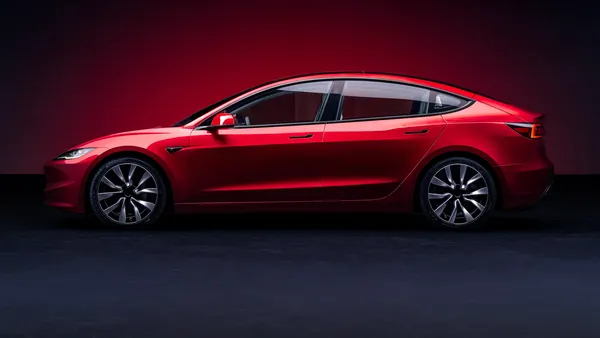Editor's note: This story is part of the WardsAuto digital archive, which may include content that was first published in print, or in different web layouts.
PARIS – Heuliez SA, the French contract manufacturer saved from bankruptcy last year by an Indian investor, has sold its first electric vehicles.
While the 3-wheeled Pelican models are nothing like a car, they break the ice for a company trying to establish itself in a new automotive order.
“We plan to start production of the Heuliez Will at the end of 2009 or beginning of 2010,” says spokesman Roger Brown, and the Heuliez Friendly is in development for market launch in 2010.
The two vehicles are different approaches toward 4-seat electric cars. The Will, with its wheel-motors from Michelin SA, will be a more expensive, high-tech car, while the Friendly is aimed at a lower-cost market.
Both automobiles will be displayed at the Heuliez stand at the Geneva auto show in March, and a new concept car is likely to be exhibited there, as well.
The Pelican is a 16-mph (25-km/h) utility cart that might be used by gardeners, street cleaners and other light-commercial activities. Powered by a 6-hp (4.6-kW) motor and a 48-volt, 95-amp/h lead-acid battery, it has a range of 22 miles (35 km). Its front-facing pickup bed can carry a payload of 441 lbs. (200 kg).
The vehicle was designed by Eco & Mobility, a small start-up in rural France supported by the Poitou-Charentes region, which is trying to establish itself as a center for EV development.
Eco & Mobility licensed Pelican production to Heuliez, which also is located in the region, because it doesn’t have manufacturing resources.
Heuliez President Paul Queveau tells magazine L’Usine Nouvelle he expects to sell 400 Pelicans this year, while a spokesman for Eco & Mobility forecasts 600 sales.
The 617-lb. (280-kg) Pelican is authorized for street driving under France’s “Special Machine” category that doesn’t require a driver’s license.
Demand is expected from cities and villages anxious to show their ecological credentials, and government price support is considerable. While the sticker is €7,500 ($9,880), France offers a €2,000 ($2,634) rebate, which is matched euro for euro by Poitou-Charentes for sales within the region.
With the Pelican, Heuliez is gaining experience in marketing and sales to prepare for the launches of the Will and the Friendly, Brown says.
The Friendly almost certainly will be a Heuliez model, and while the Will was shown in Paris with a Heuliez logo, the company is in discussions with some auto makers and others about producing the vehicle for other brands.
The Will is expected to cost closer to €20,000 ($26,347).
Heuliez once made buses sold under its own name, but for the past decade it has been manufacturing niche vehicles for auto makers, such as the electric Peugeot 106s, whose production stopped in 2004, and the current Opel Tigra Twin-Top. Heuliez will continue to build 25 of the Opels daily until output ends in July.
India’s Argentum Motors Pvt Ltd. paid €10 million ($13.2 million) last summer for 60% of the family-run company, and Argentum CEO Anjay Singh has said he wants to grow Heuliez annual revenues from €200 million ($263 million) now to €500 million ($659 million) by 2014.
Because Heuliez’s cars aren’t yet ready for the market, the company isn’t really affected by the current downturn.
“We know precisely where we are going this year,” Queveau is quoted as saying. “And the crisis aggravates nothing in our situation.”










